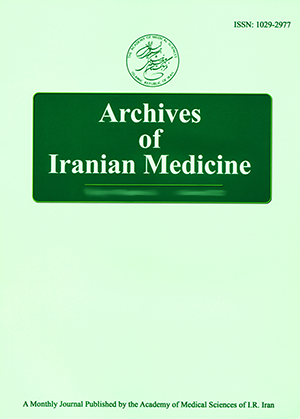Tabari Cohort Profile and Preliminary Results in Urban Areas and Mountainous Regions of Mazandaran, Iran
Authors
Affiliations
Abstract
Background: The Tabari cohort study (TCS), part of the Prospective Epidemiological Research Studies in IrAN (PERSIAN), is a large longitudinal prospective cohort designed to better understand the risk factors associated with major non-communicable diseases (NCDs) across two urban and mountainous regions in north of Iran.
Methods: The enrollment phase of TCS started in June 2015 and ended in November 2017. During this phase, individuals aged 35-70 years from urban and mountainous regions of Sari township (Mazandaran province) were invited to the cohort center by health volunteers (urban regions) and Behvarz (mountainous areas) using census information. Data was collected based on the PERSIAN cohort study protocols. Hypertension was defind as systolic blood pressure ≥140 mm Hg or a diastolic blood pressure ≥90 mm Hg or history of diagnosis with hypertension or taking antihypertensive medications among participants free from cardiovascular diseases. Diabetes was defined as fasting blood sugar ≥126 mg/dL or a history of diagnosis or taking glucoselowering medications among all participants.
Results: A total of 10,255 participants were enrolled in TCS, 59.5% of whom were female. Among the total population, 7,012 participants were urban residents (68.4%). The prevalence of daily smoking in the total population was 9.1%. Body mass index in 75.9% of participants was ≥25 kg/m2. The prevalence of hypertension, diabetes, and thyroid disorders were 22.2%, 17.2%, and 10.5%, respectively.
Conclusion: The Tabari cohort is different from other cohorts in terms of levels of risk factors associated with NCDs. This study has certain important strengths including its population-based design and large sample size that provides a valid platform for conducting future investigations and trials. A biobank that has been designed to store blood, nail, hair and urine samples for future research is another strength of this study. Researchers who are interested in using the information can refer to the following web page: http://persiancohort.com.
Keywords: Cancer; Cardiovascular; Cohort; Mazandaran; PERSIAN; Risk factor; Tabari cohort.

